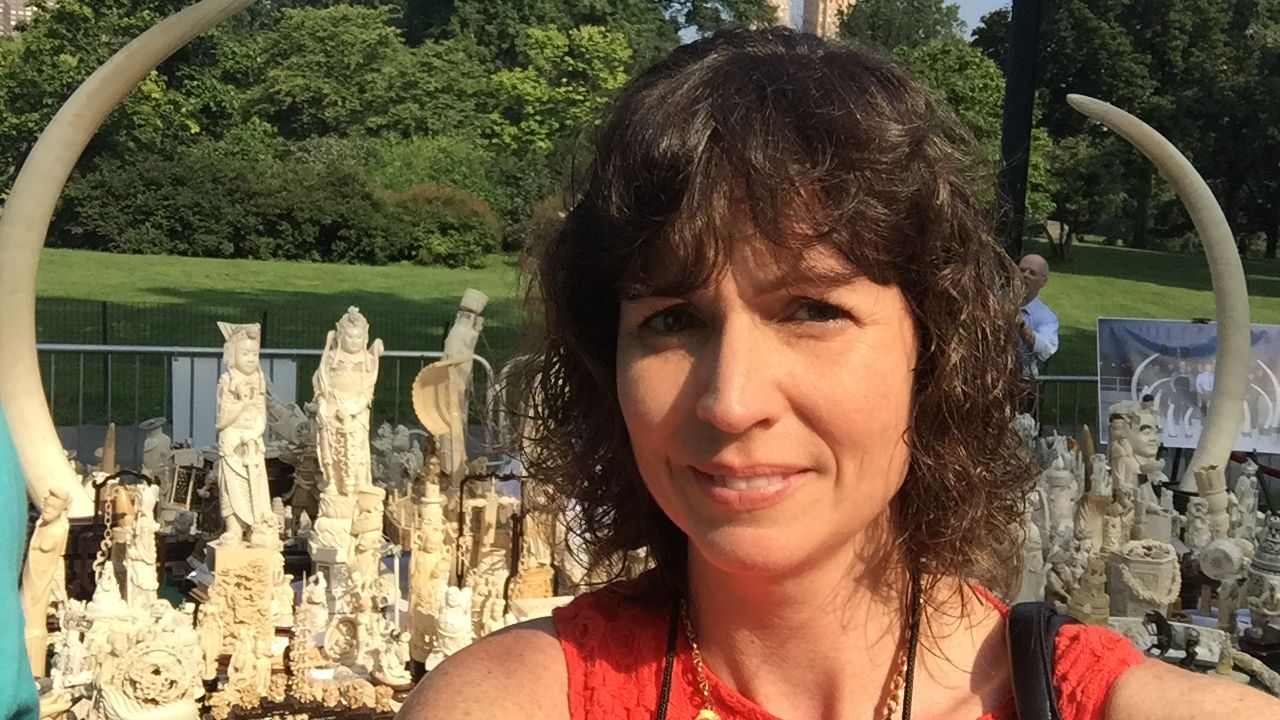
Kelly serving as a WCS liaison with US State Department and USFWS speakers at the U.S. Ivory Crush in Central Park. Photo credit: Kelly Aylward/WCS.
My mother inspired a love of nature in me from a young age. She was an avid gardener from a long line of farmers and seed salesmen. I enjoyed being outside at my mother’s side while she gardened, and my eyes would always be drawn up to the skies. It was typically birds darting around that caught my gaze.
Over the years, I became even more interested in learning how to conserve and protect the environment. As an undergraduate environmental law teaching assistant, I was drawn to bedrock legislation like the Endangered Species Act (ESA)—one of the most innovative legal and policy tools, created at a time when land destruction in the name of economic growth became normalized.
In law school, I found a network of dedicated environmentalists who encouraged and nurtured my passion for nature. My study of the intricacies of the ESA resulted in my first professional publication interpreting a U.S. Supreme Court case—reviewing the harm and harass definitions within that groundbreaking law.
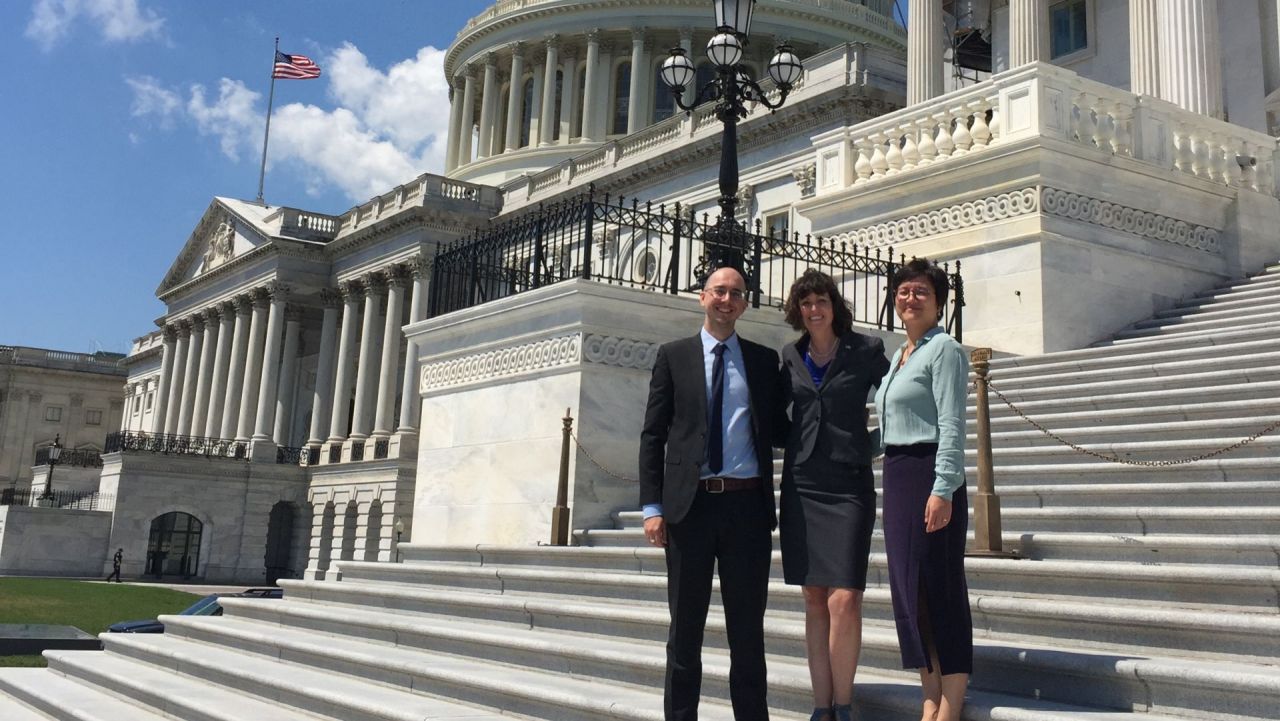
Kelly escorts WCS’s Scott Roberton, Global Wildlife Trade Director and WCS’s Aili Kang, Asia Continental Director to WCS Capitol Hill Briefing on Countering Wildlife Trafficking. Photo credit: Kelly Aylward/WCS.
Later as a law clerk specializing in land use law, I confronted the surge in development of rural America: the many shopping malls that were greenlit in the 1980s and 1990s; the farms reconceived for recreational uses such as golf courses. Despite the outcry of concerned citizens and local politicians to save the Pine Barrens and the endangered Blue Karner Butterfly in my hometown, those decades saw a massive expansion in land conversion.
As a young Capitol Hill legal staffer, I came to realize that writing environmental laws rather than interpreting existing laws could drive society toward greater stewardship of wildlife and wild places. In particular, via the budget and appropriations process, I could advise my Member of Congress to vote in favor of increasing federal grants programs to conserve rhinos, tigers, elephants and great apes based on scientific studies and financial leverage of public funding.
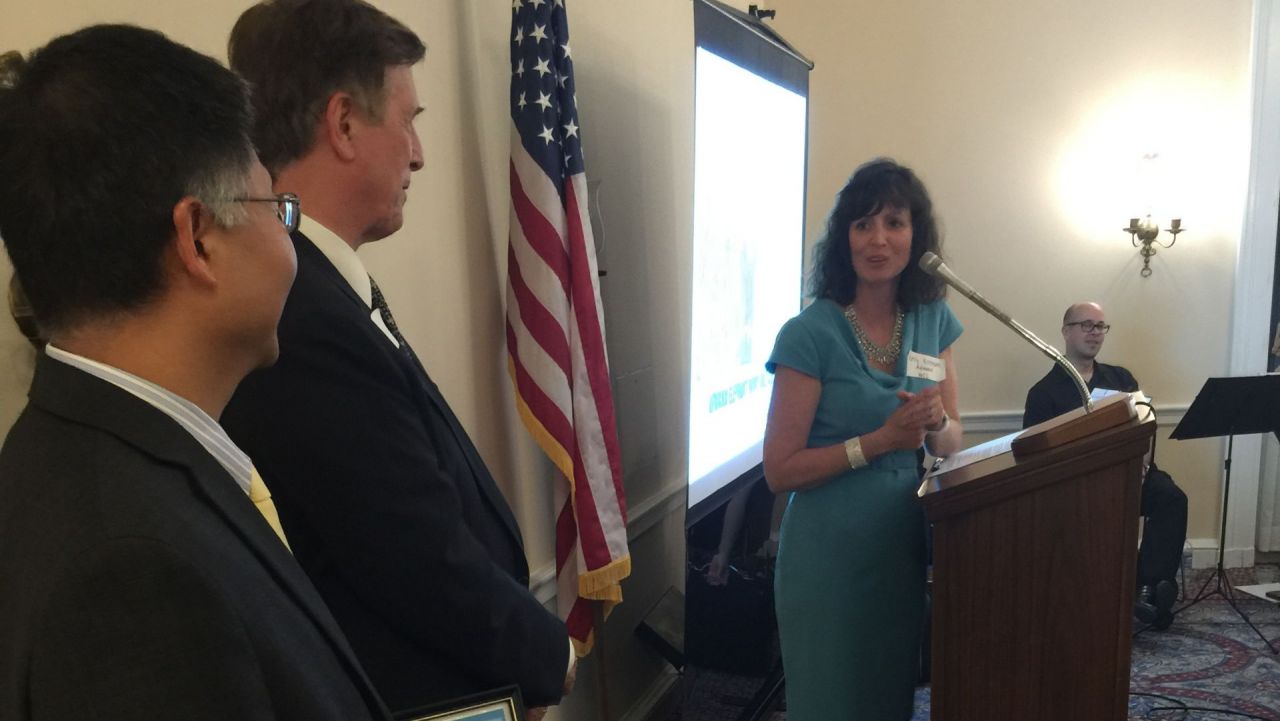
Kelly honors international conservation congressional champions Reps. Don Beyer (VA) and Ted Lieu (CA) at a Capitol Hill event. Photo credit: Kelly Aylward/WCS.
Around the same time, the Bronx Zoo-based Wildlife Conservation Society decided they needed a stronger voice in Washington, D.C. With species extinctions increasing at an alarming rate, zoonotic spillover fueling pandemics every decade, and the impacts from a changing climate growing more severe, the distance from the Bronx to the nation’s capital felt farther than ever. I knew there was more I could do as an advocate and shifted off the Hill to help launch WCS’s federal affairs office.
My work to translate the conservation efforts of zookeepers, field conservationists and wildlife health veterinarians for policymakers has given me an opportunity to see the stakes of our ongoing extinction crisis firsthand. A moonlight trek to a site in Costa Rica where turtles have been nesting for thousands of years informed my work in Washington to advocate for the establishment of a new federal grant program for marine turtle conservation.
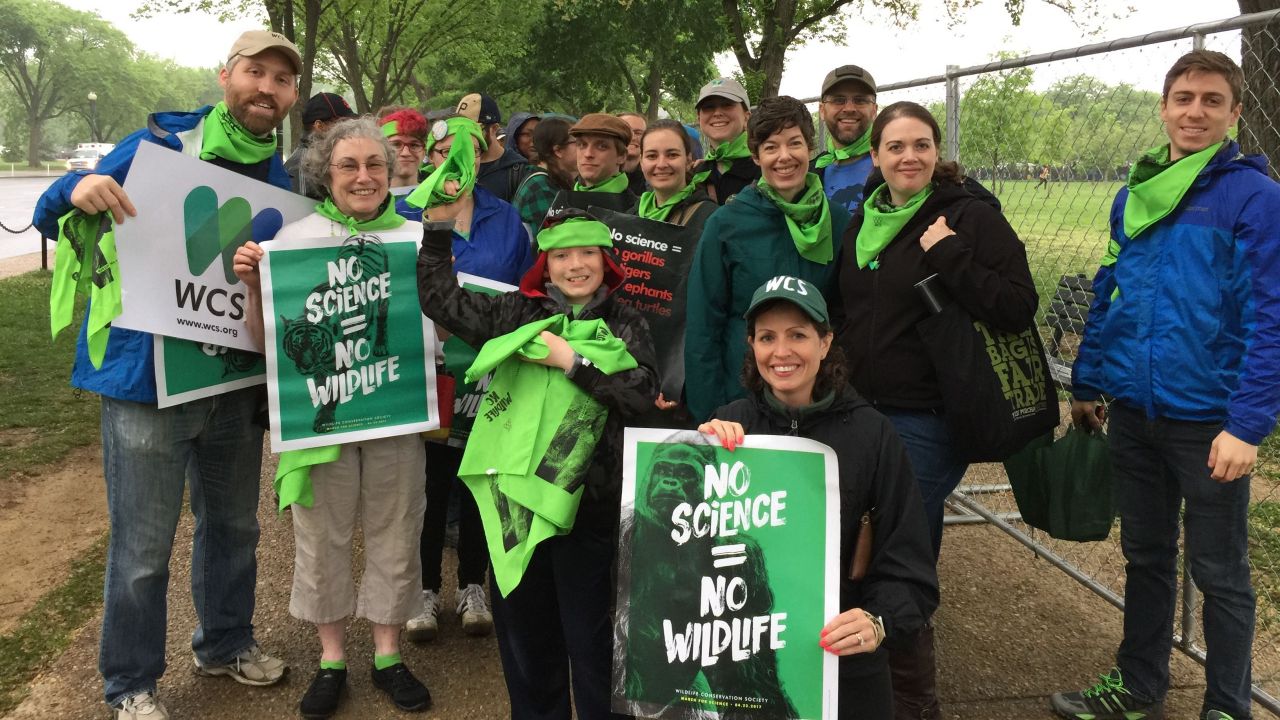
At the inaugural March for Science in Washington, DC 2017, Kelly is accompanied by her son and co-workers. Photo credit: Kelly Aylward/WCS.
A few years later, sounding the alarm on the elephant poaching crisis, I worked with coalition partners to successfully advance the enactment of the End, Neutralize and Dismantle (END) Wildlife Trafficking Act, which increased coordination across federal agencies and established new authorities to counter wildlife trafficking and corruption.
In fact, on World Wildlife Day 2023, with champions Rep. Grace Meng and U.S. Department of State Assistant Secretary Monica Medina, my colleagues and I celebrated the U.S. government’s leadership on countering wildlife trafficking and the recent expansion of authorities under the END Wildlife Trafficking Act.
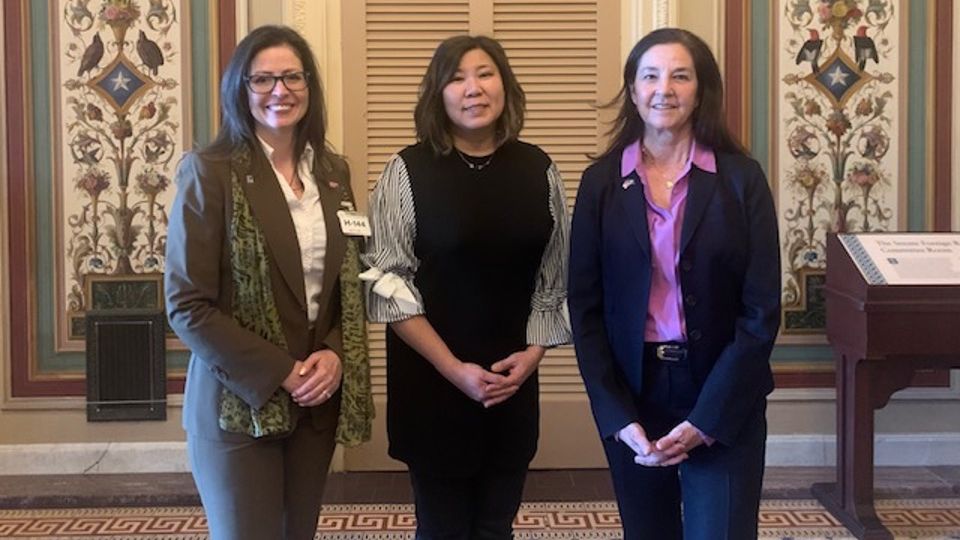
Kelly celebrating the 10th Anniversary of World Wildlife Day with U.S. Rep. Grace Meng (D-NY) and U.S. Department of State Assistant Secretary Monica Medina. Photo credit: Kelly Aylward/WCS.
I was proud to collaborate with these women in pursuit of stronger U.S. government policies to promote ecological integrity, arrest the species extinction crisis, and halt global deforestation.
I’m a firm believer that by linking personal and organizational networks, we can achieve greater results than what might be accomplished acting alone. That’s why I joined the founding board of the Emerging Wildlife Conservation Leaders program to build the capacity of early career conservationists. Leveraging one’s voice and expertise to effect policy is a leadership skill that young scientists need.
Most recently at WCS, I joined the Women and Gender Equality (WAGE) Employee Resource Group to catalyze change in career development for fellow colleagues. Twenty years of conservation policy work has taught me that a strong foundation in the law coupled with an active network and a passion for cultivating the next generation is a gameplan for success.
